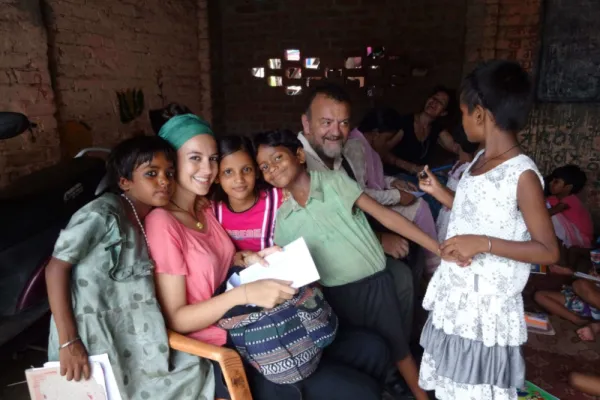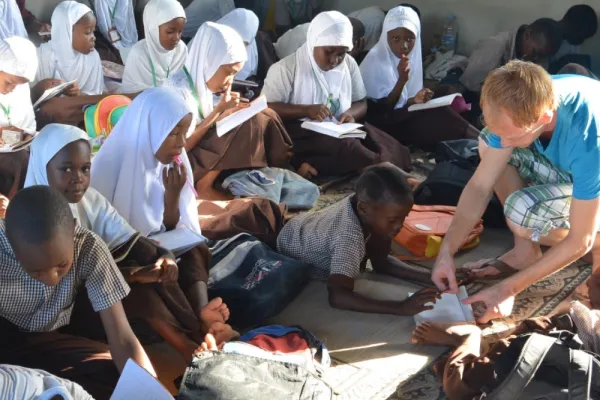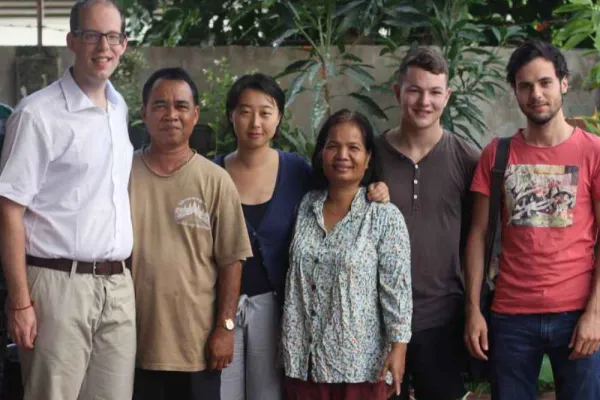Book with complete peace of mind with our Flexible Booking Policy
Requirements to Volunteer Abroad for U.S. Citizens
-
{
-
- |
-
Read time
5 minutes

Thinking about volunteering abroad as a U.S. citizen? It’s an incredible opportunity to give back, explore new cultures, and gain perspective. But before you hop on a plane, there are a few important things to check off your list. From paperwork to safety prep, getting organized ahead of time helps ensure your experience is smooth, meaningful, and secure.
This guide covers the key requirements and tips you need to know, so you can focus on making a real impact, one step at a time.
Legal Requirements for U.S. Citizens Volunteering Abroad
While there’s no special license or government approval required for U.S. citizens to volunteer abroad, there are still a few important legal requirements to be aware of:
- Follow visa and entry regulations in your host country. Volunteering on a tourist visa is not allowed in some countries, so it’s important to verify the correct visa type in advance. Some nations require volunteer-specific or work-type visas, even for unpaid roles.
- Criminal background checks are often required by volunteer organizations, especially when working with children, in schools, or in healthcare. Be ready to provide an official check before departure.
- Travel and health insurance may be legally required by the host country or the program. It’s also strongly recommended, covering things like medical emergencies, accidents, or evacuations.
- Vaccination proof (such as Yellow Fever or COVID-19) may be required at entry depending on the country’s public health rules. Check embassy and CDC guidelines before your trip.
- Compliance with local laws is your responsibility once abroad. Understand what’s considered appropriate conduct in your destination to avoid misunderstandings.
Travel Documents and Essentials
Before you volunteer abroad, make sure your documents are valid and ready. Your U.S. passport should have at least six months of validity beyond your planned return date. Double-check the expiration date, especially for children’s passports, which are only valid for five years.
You’ll also need to research visa requirements for your destination. Some countries allow short volunteer stays without a visa, while others require a specific volunteer visa or permit. Contact the embassy or check the U.S. State Department’s website for up-to-date guidance.
Enroll in the Smart Traveler Enrollment Program (STEP) to receive alerts about safety conditions in your destination and make it easier for the U.S. Embassy to reach you during an emergency. It’s free and only takes a few minutes to sign up.
Having your documentation in place gives you peace of mind and keeps your travel plans running smoothly.

Researching the Volunteer Organization
Choosing the right volunteer organization is one of the most important steps in your planning process. Not all programs are created equal, and taking time to research can protect both you and the community you're hoping to serve.
Start by looking beyond glossy websites and brochures. Read reviews from past volunteers to get a sense of how the organization operates on the ground. Were the projects safe, well-organized, and impactful? Did volunteers feel supported and prepared?
Check if the organization partners with a reputable group in the destination country. Ask whether they have visited and assessed the project site themselves. It’s a good sign if they maintain a consistent local presence and prioritize community involvement.
If the program involves working with children, especially in orphanages, take extra care. Learn about the risks associated with child institutionalization and make sure the program follows ethical standards.
Health and Safety Preparations
Good preparation goes beyond booking your flight - it’s also about protecting your health and well-being during your time abroad. Before you leave, schedule a visit with your healthcare provider to discuss vaccines, prescriptions, and any region-specific risks.
Some countries may recommend or require vaccinations for diseases such as Yellow Fever, Typhoid, Hepatitis A or B, or COVID-19. Bring a record of your immunizations and any medications you’ll need for the duration of your stay. If you take daily prescriptions, be sure to bring enough for your full trip, along with a copy of your doctor’s note.
Travel insurance is essential. Look for a plan that covers not just accidents or illness, but also emergency evacuation and trip delays. Many volunteer programs require proof of coverage, so get your policy set before departure.
If your project involves physical labor, remote locations, or interaction with vulnerable populations, ask your organization what health and safety measures they follow. A good program will offer clear guidance, on-site support, and access to medical care if needed.

Emergency Support and On-the-Ground Safety
Being prepared for unexpected situations is a big part of traveling responsibly. Before you commit to a program, find out what kind of safety systems they have in place to support you during your stay.
A reliable organization should have clear emergency plans. These may include 24/7 support from a local team, staff trained in first aid, and access to nearby medical care. Ask if they’ve conducted a risk assessment for the region and whether they’ve outlined steps for natural disasters, health emergencies, or political unrest.
You should also receive a security briefing before your departure or upon arrival. This should cover practical topics like local laws, cultural customs, communication tips, and how to handle basic safety situations. Programs with strong safety protocols will also make sure staff members speak the local language and know where the nearest hospital and police station are located.
Keep your own safety routine in place too. Share your itinerary with someone at home, carry emergency contact numbers with you, and always be aware of your surroundings.
Get Expert Support Every Step of the Way
Volunteering abroad should feel exciting, not overwhelming. From helping you choose the right program to offering 24/7 in-country support, Volunteering Solutions ensures you’re prepared, protected, and confident throughout your entire trip.
We’ll guide you through the paperwork, visa requirements, insurance options, and health tips, and once you arrive, our experienced local teams are always close by.
Start your journey with the right support system behind you.
Software designer, founder, and amateur astronaut.
I’m Spencer, a software designer and entrepreneur based in New York City. I’m the founder and CEO of Planetaria, where we develop technologies that empower regular people to explore space on their own terms.

Recent Blogs
How Does Volunteering Abroad Benefit High School Students?
Family Volunteer Ideas That Are Great for the Whole Family
Still have Questions?
Change language & currency
Currency



























